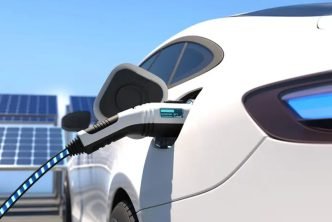The summer months may not have seemed like much, but they’re over nonetheless – and winter is already threatening. The winter months are often perceived as more dangerous to drive in, even if this isn’t quite borne out by the facts. The longer nights and inclement weather can make for less ideal driving conditions, and can also have direct impacts on your car. What are some simple preparations you can make to make winter driving safer and easier?
Table of Contents
Check Your Oil
Checking your oil should be a regular occurrence, but winter is a particularly important time at which to do so. This is because the lower temperatures can cause older oil to thicken, reducing its efficacy and increasing the likelihood of engine wear. Replacement would be ideal, but if your oil level is low a good top-up could well do the trick.
Swap Your Tyres
Your car tyres are an essential aspect to car maintenance to bear in mind when winter falls; generic and summer tyres tend to be constructed of a rubber compound designed to be supple in warm weather, ensuring a better ‘stick’ to the hot asphalt. In the winter, though, the rubber stiffens, leading to less road contact and less traction.
Not only this, but the treads on summer tyres are wholly inadequate for winter weather, with both snow and heavy rain presenting issues with traction and control. With all this in mind, switching over to winter car tyres can make driving easier and safer in the winter weather.
Check Your Wiper Blades
This is a small point, but one which can nonetheless have a big impact on the safety of your winter driving. Windscreen wipers are often the last things on our minds when considering car care, but they are, for all intents and purposes, perishable items. The rubber stiffens, degrades or otherwise fails over time, while grit can bed in and scratch the windows.
In the winter, rain and snow are more prevalent, as is the resulting road-spray from other cars; checking, and, if necessary, replacing your windscreen wipers ensures that your visibility is never irretrievably hampered during travel.
Test Your Battery
Finally, it is a little-known fact that your car’s battery can be affected by changing temperatures. Car batteries are chemical batteries, and lower temperatures can affect the way in which the chemicals interact – reducing the battery’s capability to hold charge, something which electric car drivers are discovering in increasing numbers. Flat batteries and non-starters are more common in the winter for this reason, hence the suggestion that you test your batteries after the start of winter, in order to avoid any nasty surprises.





